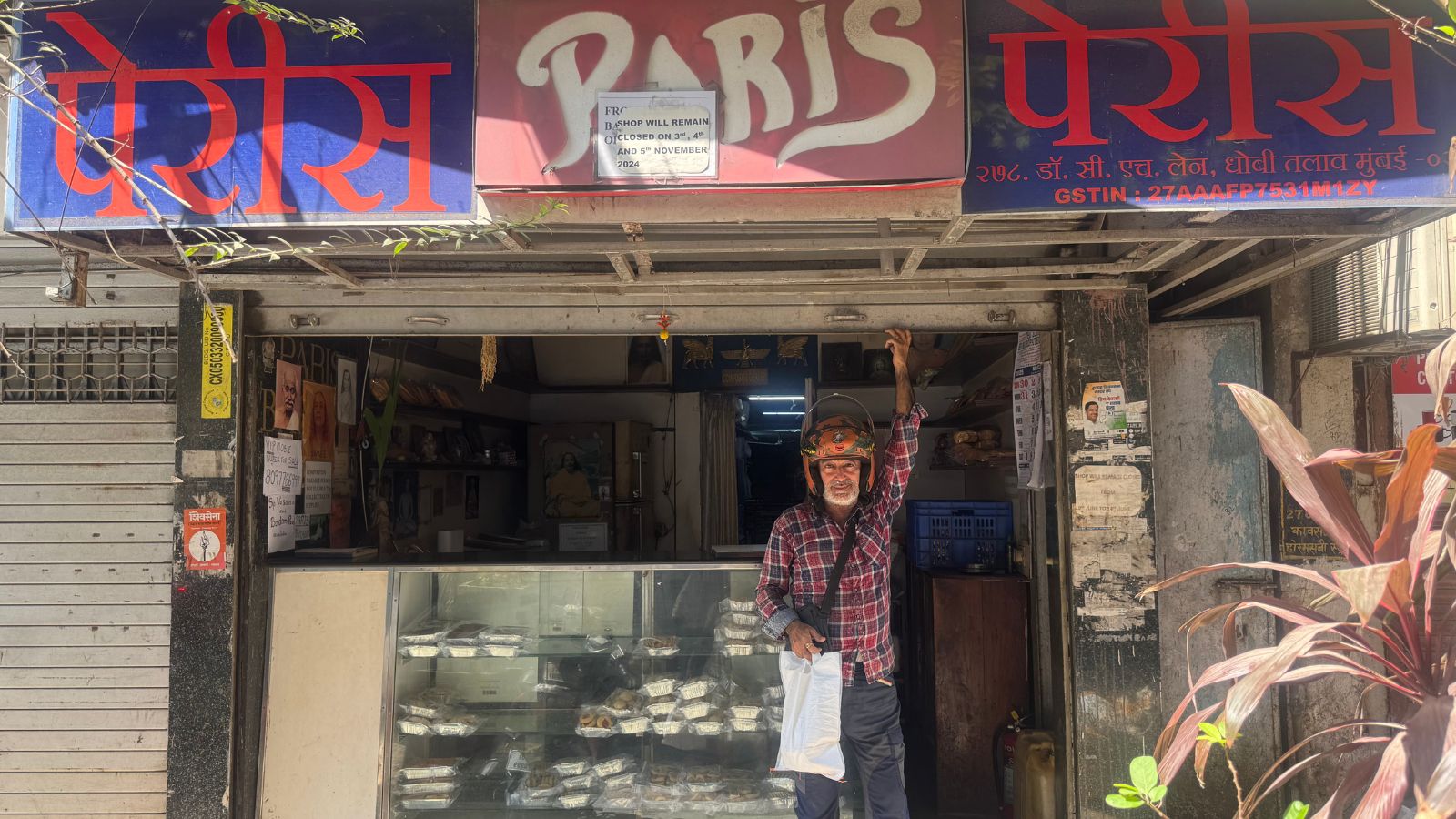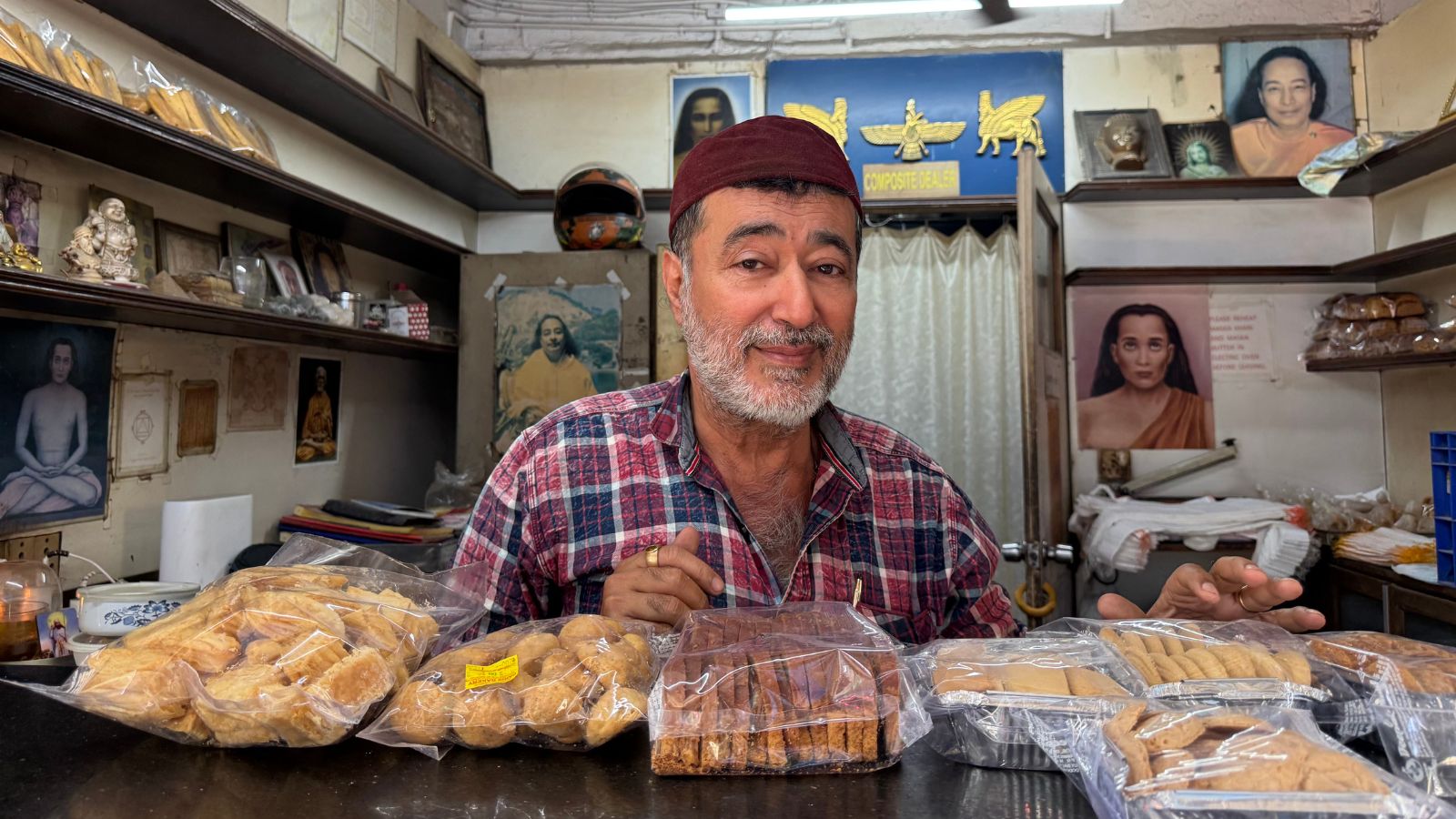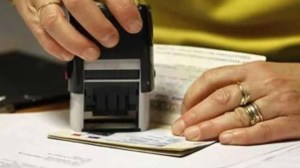Around Town: Having survived grabbing, betrayal, decoity over seven decades, Dukkar Galli’s hugely loved Paris Bakery now worried over pollution curbs
From maska khari to milk buns, Paris Bakery’s delicacies are still drawing regulars to its doorstep. A notice mandating a switch to cleaner fuels, however, is threatening its future.
 Paris Bakery was started by a Parsi family in 1955. (Express photo)
Paris Bakery was started by a Parsi family in 1955. (Express photo)At a time when everyone around him was baking and selling bread, Danish Nejadkay wanted more. So, when he took over Paris Bakery in 1985, he shifted focus to biscuits and baked goods. Over the years, he developed recipes for Shrewsbury biscuits, palmiers, cashew macrons, cheese papdi, walnut oats cookies, cake toast, milk buns, wine biscuits, and cheese sticks—over 20 items in total.
Sold from a modest counter at the front, these treats are made in a larger production unit behind it on Dr Cawasji Hormusji Street, popularly known as Dukkar Galli. Once lined with pork shops catering to the Catholic community, this street in Dhobi Talao, Marine Lines, has been home to the bakery for 70 years.
Nejadkay, 62, shared that Paris Bakery was started by a Parsi family in 1955. “My father entered into a partnership with them in 1963,” he said, adding that his grandfather and father also ran Brabourne Bakery in Chira Bazaar. As for the name Paris Bakery, he suspects that some gentleman went to Paris and named it after being charmed by the French city.
 The bakery’s eclectic decor catches the eye—figurines and posters of religious and non-religious gurus fill the space. (Express photo)
The bakery’s eclectic decor catches the eye—figurines and posters of religious and non-religious gurus fill the space. (Express photo)
Like any long standing establishment, Paris Bakery has seen its share of drama. In 1975, Nejadkay’s father and his partners handed over the bakery’s management to a Gujarati gentleman. A decade later, when Nejadkay dropped out of engineering college to join the family business, the gentleman refused to return the bakery. “He told us to go to court. We did everything we could and eventually threw him out, telling him to go to court instead,” he recalled. The ‘90s were a golden period for the bakery, but Nejadkay has also faced betrayals. “I have been robbed and cheated by my employees many times. Once, there was even a dacoity at midnight,” he said.
While he speaks, the bakery’s eclectic decor catches the eye—figurines and posters of religious and non-religious gurus fill the space. At the centre stands a brass idol of Ahura Mazda, the supreme god of Zoroastrianism. To the right are images of Mother Teresa, Jesus, a hand-painted Indian goddess, and Buddha. To the left, photos of Paramahansa Yogananda sit beside a Ganesh idol, a Laughing Buddha statue, and a gold-framed portrait of Nejadkay’s father. “I am religious, but for me, religion is like parents. You should respect yours without disrespecting others,” he shared.
The secret sauce: Quality products and Amul butter
There was a time when Paris Bakery operated from 5 am to midnight. Today, it runs from 10 am to 1.30 pm and again from 5 pm to 7.30 pm. On Sundays, it opens for just two and a half hours. Manning the counter is Nejadkay’s brother Behram, a retired Navy merchant.
 Nejadkay’s clientele includes well-dressed men and women from the neighbourhood, picking up maska khari, maska button, and milk toast. (Express photo)
Nejadkay’s clientele includes well-dressed men and women from the neighbourhood, picking up maska khari, maska button, and milk toast. (Express photo)
“You should do everything with heart and soul, and then you won’t have to chase customers—they will come to you,” Nejadkay said. His words ring true. Though there is no visible rush, Behram shares that a queue forms before the shutters rise in the morning and evening.
During our visit, we saw a steady stream of customers. Nejadkay’s clientele includes well-dressed men and women from the neighbourhood, picking up maska khari, maska button, and milk toast. Some even ask when he will make a particular dish. “Whenever I come up with an idea, I develop a recipe and offer it as a free sample. If customers like it, I add it to the menu,” he said.
Certain items, like milk buns, have a niche following. “I make milk buns just once a week, on days when production is lower. They are made with condensed milk and the best raisins—the kind you won’t find even in the city’s best restaurants. Each bun costs Rs 25, and some customers don’t mind waiting up to 10 days for them,” he said.
The secret to his loyal following? “Full butter,” Nejadkay said. “If everyone used full butter, they all would have been a hit.” In the kitchen, large blocks of Amul ghee sit atop mounds of white flour. The team is busy preparing maska khari, which is so popular that it is sold straight from plastic crates stacked one above another.
 Certain items, like milk buns, have a niche following. (Express photo)
Certain items, like milk buns, have a niche following. (Express photo)
Paris Bakery got the notice too
Paris Bakery is among the establishments that received a show-cause notice from the Maharashtra Pollution Control Board earlier this year, mandating a switch to cleaner fuels like electricity or Piped Natural Gas. The notice warns that non-compliance could lead to closure.
Nejadkay, whose ovens run on diesel, recalled that he previously had a wood-fired oven but switched in 1993 when authorities began banning them. Now, with diesel ovens under scrutiny, he is frustrated. “A properly maintained diesel burner only emits black smoke if it’s clogged,” he stressed. “If diesel is such a problem, they should ban all trucks too.”
The switch will cost him Rs 10-15 lakh, but raising prices is not an option. He would prefer a gas-fuelled oven, but regulations require gas cylinders to be stored in an outdoor chamber. “Where am I supposed to build this chamber? My shop is on the street, and behind me is a chawl,” he said. Frustrated, he admitted, “Sometimes I think it’s better to just pack up and leave.”







